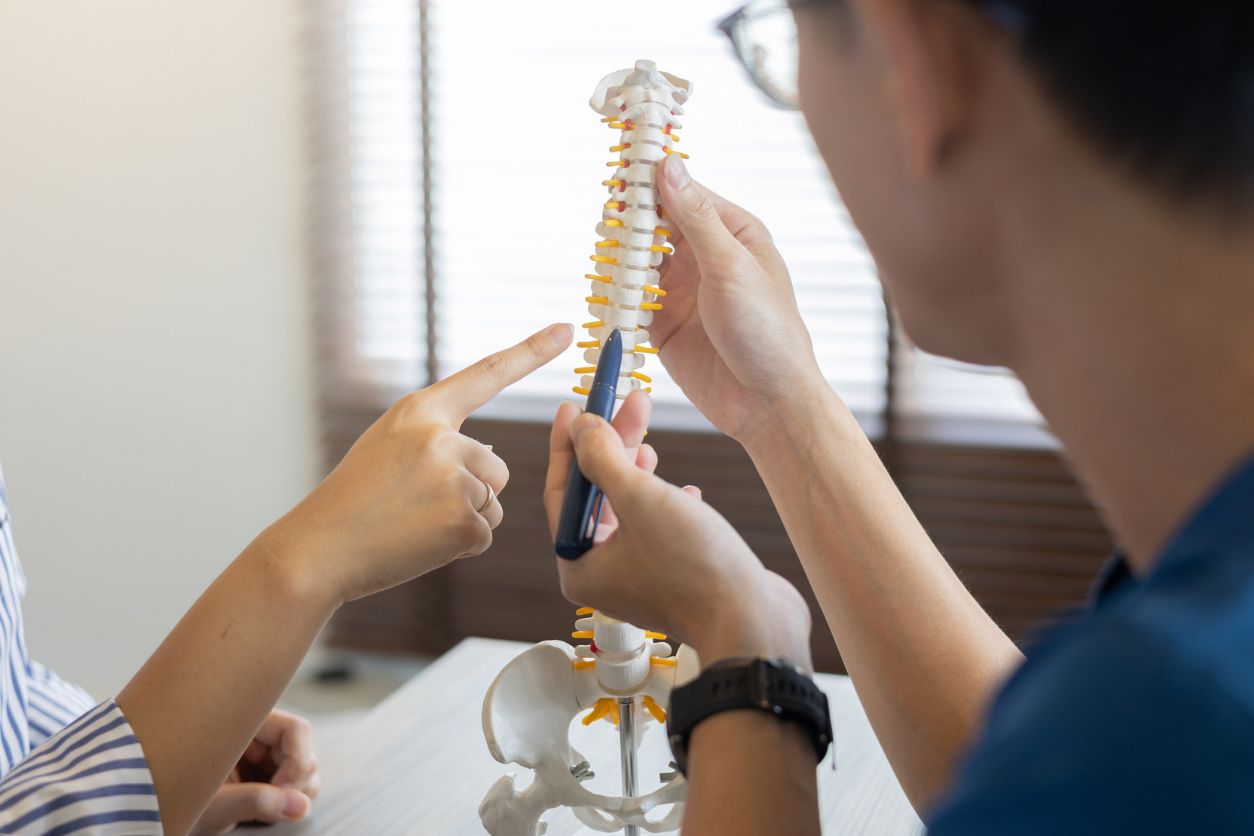
Scoliosis is often associated with adolescence, but did you know that adults can develop scoliosis, too? In fact, adult scoliosis is a common condition that can arise due to several factors. Whether you’re experiencing new back pain or have been diagnosed with scoliosis later in life, it’s important to understand the causes, symptoms, and treatment options available. At Scoliosis Care, Dr. Siambanes and his team specialize in diagnosing and treating adult scoliosis with compassionate and personalized care.
What is Adult-onset Scoliosis?
Adult-onset scoliosis refers to scoliosis that develops after skeletal maturity, typically in individuals over the age of 18. Unlike adolescent scoliosis, which often occurs due to rapid growth during puberty, scoliosis in adults is usually related to degenerative changes in the spine or other factors that affect spinal health.
There are two main types of scoliosis in adults:
- Degenerative Scoliosis (De Novo Scoliosis): This type of scoliosis develops as a result of age-related wear and tear on the spine. As the discs and joints in the spine deteriorate, the spine may begin to curve abnormally.
- Adult Idiopathic Scoliosis: This occurs when scoliosis that developed during adolescence progresses or becomes symptomatic in adulthood. Many adults with scoliosis may not have experienced symptoms as teenagers, but the curvature can worsen over time.
Causes of Scoliosis in Adults
There are several factors that can contribute to the development of scoliosis in adulthood, including:
- Degenerative Disc Disease: As we age, the discs in our spine lose moisture and flexibility, which can lead to degeneration. This can cause the spine to shift and curve.
- Arthritis: Osteoarthritis and other forms of arthritis can affect the joints in the spine, leading to abnormal curvatures.
- Osteoporosis: Weakening of the bones due to osteoporosis can make the spine more susceptible to developing scoliosis.
- Previous Injuries or Surgeries: Trauma or surgeries involving the spine may lead to spinal instability and subsequent curvature.
Symptoms of Adult Scoliosis
The symptoms of scoliosis in adults can vary widely, but they often include:
- Chronic Back Pain: One of the most common symptoms of adult scoliosis is persistent back pain, which can worsen over time as the curve progresses.
- Uneven Shoulders or Hips: Similar to adolescent scoliosis, adults may notice uneven shoulders, hips, or a change in their posture.
- Limited Mobility: As the curvature worsens, individuals may experience stiffness and difficulty with movement, particularly when bending or twisting.
- Nerve Pain or Numbness: In severe cases, the spinal curvature can compress nearby nerves, leading to pain, numbness, or weakness in the legs.
Diagnosing Scoliosis in Adults
If you suspect you may have scoliosis, it’s important to seek a diagnosis from a qualified healthcare provider. At Scoliosis Care, Dr. Siambanes uses a variety of tools, including physical exams and imaging tests like X-rays, to evaluate the severity of the spinal curve and determine the best course of action.
Treatment Options for Adult Scoliosis
While scoliosis cannot be completely reversed, there are several treatment options available to manage symptoms and prevent the condition from worsening.
1. Physical Therapy

Physical therapy can be incredibly effective for adults with scoliosis, focusing on strengthening the muscles that support the spine, improving posture, and reducing pain.
2. Pain Management
Pain management strategies, including medications, injections, or chiropractic care, can provide relief from chronic pain and inflammation caused by scoliosis.
3. Bracing
While bracing is more common in adolescents, some adults may benefit from wearing a brace to support the spine and alleviate discomfort, especially in cases of instability.
4. Surgical Intervention
In cases where scoliosis causes significant pain, nerve compression, or affects the ability to function, surgery may be recommended. Procedures such as spinal fusion can help to stabilize the spine and prevent further progression of the curvature.
Living with Adult Scoliosis
Living with scoliosis as an adult can present challenges, but with the right care and management, many individuals lead full, active lives. Early intervention and a personalized treatment plan are key to reducing symptoms and improving quality of life.
Get Expert Care at Scoliosis Care
At Scoliosis Care, we are dedicated to helping adults manage their scoliosis with compassion and expertise. Whether you’ve been recently diagnosed or have been living with scoliosis for years, Dr. Siambanes and our team are here to provide you with the care you need to feel your best.
Schedule Your Consultation Today
If you’re concerned about scoliosis as an adult, don’t wait to seek help. Contact us today to schedule a consultation with Dr. Siambanes and explore your treatment options. Together, we’ll create a plan to support your spine health and improve your overall well-being.








